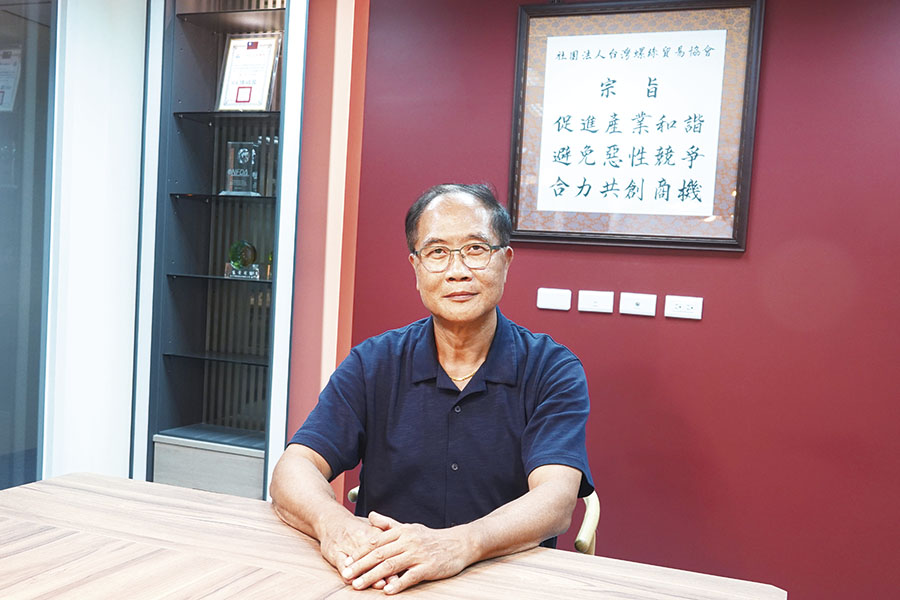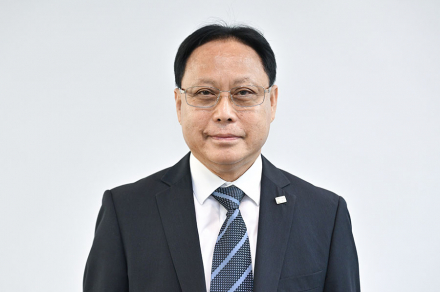GOVERNMENTS/ASSOCIATIONS/FASTENER GROUPS
Interview with TFTA Chairman Arthur Chiang


Add to my favorite
2024-11-20
Q1: Can you tell us about the performance of Taiwan fastener industry so far this year?
A: The overall production and sales performance of Taiwan fastener industry this year is not good. If compared with the same period last year and depending on the respective status of manufacturers, they mostly reported a decline of about 10-30%, and it is also heard that some of the few small processing factories have faced a rather serious situation because of the upstream order shrinkage. According to the experience of previous years, September should have welcomed a wave of orders, however, as the European customers’ inventory level remains high, a significant decline in orders has been seen from the beginning of this year, even the orders for special products are showing the same scenario. As a result, I predict that before the end of this year, Taiwan's order intake may not appear a significant recovery. Fortunately, the orders from U.S. customers are a bit better.
Q2: What factors do you think contributed to this result?
A: In my opinion, the decline in demand from most European industries is the main reason. Firstly, during the previous pandemic, European customers rushed to Asian countries to place orders due to worries about supply chain disruptions and over-optimism about demand recovery after the pandemic. However, the ensuing Russia-Ukraine war, exchange rate fluctuations, inflation, and the resulting surge in electricity and oil prices quickly disrupted the market's recovery. I expect demand to continue to decline if the war between Russia and Ukraine continues. Secondly, the rapid rise of Chinese EV manufacturers threatens the development of mainstream European automotive producers such as Germany, not only in terms of manufacturing costs and battery technology, but also in terms of the use of welded automated mass production, which significantly reduces the demand for fasteners used in traditional engines. Third, the outcome of the U.S. presidential election will certainly affect the global situation. Whether it is Trump's emphasis on “Made in America” or the imposition of import tariffs and other issues may affect the subsequent development of the fastener industry.
Q3: Are there any major challenges facing Taiwan fastener industry this year?
A: Manufacturing cost is one of the major challenges. Compared to the prices quoted by China and other steel mills, the price of wire rod from Taiwan CSC used by most Taiwanese companies is on the high side. Even though some companies previously imported wire rod from Vietnam, India, Brazil, Ukraine, etc., their prices still could not be lowered in consideration of transportation and manufacturing costs (e.g., the cost of carbon steel fasteners accounted for more than 55% of the total manufacturing cost). In addition, China continues to dump low-priced steel in response to its sluggish domestic demand, making Taiwan's industry even less competitive in terms of export quotations. I hope that Taiwan CSC can stand in the industry's point of view, examine the situation of Chinese competitors and the international market prices, and try its best to reduce the price to a level everyone can appreciate, which is not only helpful to the industry's exports, but also a long-term development strategy for Taiwan CSC which needs the support of the industry's sustained orders.
Q4: In the face of unavoidable global competition, what do you think Taiwanese fastener suppliers can do to demonstrate their competitiveness and what are still their strengths?
A: In order to remain competitive, Taiwan must strive to move towards “refinement” as “quality” is still the most important part of customers’ minds. The quality of Taiwanese products is obvious to all. However, it is important to note that our Chinese competitors are already catching up and making rapid progress. Many Chinese manufacturers have introduced a large number of sorting machines into their production lines in recent years, in an effort to reduce product defect rates on the one hand, and speed up automated production to cope with labor shortages on the other hand. If Taiwanese manufacturers want to maintain their leading position in the international market, they must spend more energy on quality control and employee training.
In addition to high quality and technology, Taiwanese companies are also more robust and stable in terms of “financial health” compared to their competitors. I understand that customers may choose to switch orders temporarily due to competitors' low prices, but from the perspective of sustainable operation and risk management, it is definitely the right choice to diversify orders to Taiwanese companies.
In terms of external relations, manufacturers should find ways to build customer confidence and strengthen adhesion with them, and convince them with technology to cooperate in product development. Taiwan is still a leader in precision molds & dies development despite the current sluggish market situation. It is recommended that manufacturers can seize the opportunity to put more effort into improving molds & dies development, such as reducing tolerances, accelerating the time to change molds and dies, so that the efficiency of production lines can be enhanced, consolidating the industry’s competitive edge.
The business world is like a war zone. In the face of competition from China, India and Vietnam, Taiwanese companies must be vigilant at all times to gain more market share. If a customer has an order worth a million dollars, even if your capacity is only for an order of 200,000 dollars, in the case of many competitors eager to get a piece of the pie, you have to find ways to get this one million dollars order to create more opportunities for yourself in the competitive market, otherwise the end is to give away the opportunity and your market share was taken by competitors.
Q5: What quarterly meetings and events has TFTA planned for the new year?
A: TFTA will hold an Annual General Meeting in Gangshan, Kaohsiung City on December 6 this year, where representatives of the Ministry of Labor (Taiwan) will be invited to attend to further explain the issues of labor, automation, subsidies, and employment for middle-aged and senior citizens that are of concern to our members. TFTA also continues to maintain close communication with the Industrial Development Administration of MOEA (Tainan Branch), ITRI, MIRDC and other official units in the hope that the voices of TFTA members (generally SMEs) can be fully conveyed to relevant authorities. In addition, TFTA has recently been actively contacting private enterprises to plan courses or lectures on information security, automation, and digitization in the hope that through the tripartite integration of industry, government, and academic resources, it will help member factories, which are getting more and more second-generation new blood, to focus more on factory operation.
Q6: Have you achieved any goals or accomplishments (including international exchanges) since you took over the chairmanship?
A: As the Chairman of TFTA, my main task is to play the role of a bridge between manufacturers and the government. Fastener manufacturers used to work alone, so I encourage business owners and the 2nd generation to make good use of the government's resources to re-plan and integrate the resources in their factories (e.g., automation, energy saving, carbon reduction, labor, and government subsidies), and I'm willing to do my best to help the industry to strengthen the communication with industry, government, and academia, so that they can understand how to apply for and make good use of these resources.
In terms of international exchanges, I’ve planned to participate in the annual meetings of our partnered European and American Fastener Associations, where I hope to let our international friends understand the actual situation of Taiwan fastener industry and alleviate their concerns about the current geopolitical risks. I have also instructed TFTA International Committee to seek communication with more international associations in the hope of promoting more international cooperation opportunities.
Q7: What are your expectations for the global fastener industry in 2025?
A: The new year, of course, holds new hopes. In the face of increasing competition in the industry and the mid-term crisis facing the industry requiring suppliers to have overseas operation, Taiwan's industry must find ways to survive in the face of strong competition. Taiwanese government should be fair to the development of different industries, take a more active role in backing up the industries rather than focusing only on the IT industry, provide more relief packages for the hard-pressed industries, and, more importantly, make more young people to change their mindset and be willing to work in factories. Taiwan fastener industry has worked hard to improve its working environment, enhance its technical quality, and improve its corporate image, and has been a far cry from it used to be. It has taken on greater corporate responsibility and commitment when dealing with foreign suppliers and customers. In my opinion, Taiwan fastener industry nowadays should no longer be deemed as a “sooty” low-ranking industry, but rather as a modern, specialized and refined high-precision industry.
專訪
台灣螺絲貿易協會
蔣國清理事長
TFTA
Taiwan Fastener Trading Association
Chairman Arthur Chiang
電動車
EV
製造成本
manufacturing cost
模具開發
海外+1
overseas factory
政府資源
government resources
die development
同業競爭
competition
會員大會
annual members meeting
德國杜塞道夫線材展
扣件
國際展會
惠達雜誌
匯達實業
外銷媒合
廣告刊登
螺絲五金
五金工具
緊固件
台灣扣件展
印度新德里螺絲展
越南河內螺絲展
墨西哥瓜達拉哈拉螺絲展
美國拉斯維加斯螺絲暨機械設備展
波蘭克拉科夫螺絲展
義大利米蘭螺絲展
德國司徒加特螺絲展
wire Dusseldorf
FASTENER FAIR INDIA
FASTENER FAIR VIETNAM
FASTENER FAIR MEXICO
FASTENER POLAND
FASTENER FAIR ITALY
FASTENER FAIR GLOBAL
READ NEXT

Subscribe







